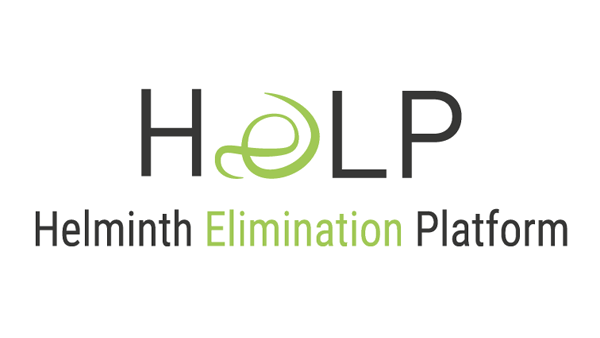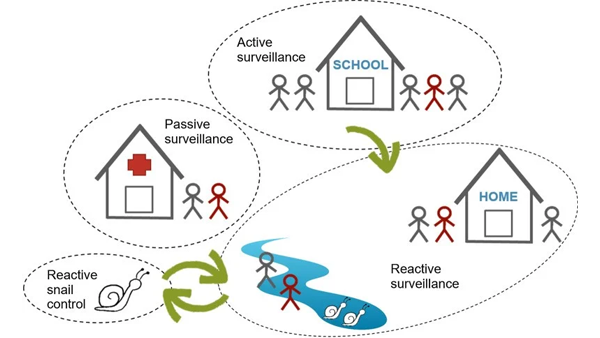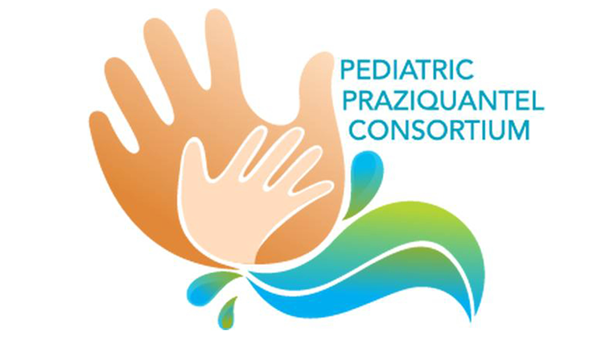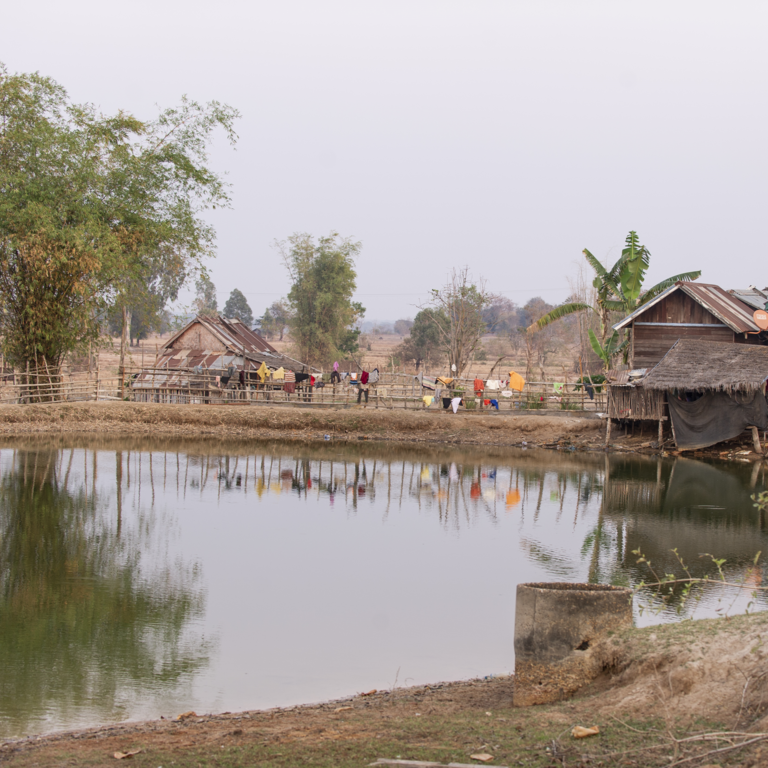

Parasitic Worm Infections - Helminthiases
Parasitic worm infections are a major public health issue in many low-income tropical and subtropical communities. In the case of soil-transmitted helminthiases, schistosomiases and food-borne trematodiases, infections are transmitted by eggs shed in faeces or urine, which contaminate soil and water bodies. Lack of access to improved sanitation and safe water increases the risk of transmission, as do unsafefood practices. Various helminth infections can compromise the nutritional status of infected humans and animals, affect cognitive processes or cause tissue damage leading to blindness, lymphoedema and other symptoms. Certain helminths are also classified as carcinogens. The morbidity and mortality from helminth infections can debilitate entire communities and contribute to poverty in endemic areas.
The Commitment of Swiss TPH
Swiss TPH is involved in a wide range of activities related to te study and control of parasitic worm infections. Our work includes basic research, drug discovery and clinical trials, evaluation and development of new diagnostic tools, modelling and mapping of risk areas and disease burden, support to countries in setting up their control and elimination programmes, and teaching and training both in Switzerland and in endemic areas.
WHO Collaborating Centre
Key Projects
Developing New Drugs for Infections Caused by Parasitic Worms
The Helminth Elimination Platform (HELP) is a new consortium of research institutes, universities, not-for-profit organizations, and pharmaceutical companies, formed to develop new drugs for infections caused by parasitic worms (helminths), a debilitating group of diseases that includes river blindness, lymphatic filariasis, as well as infection with hookworm and whipworm. Together these diseases affect close to a billion people. Read more
Novel Tools and Strategies for Breaking Schistosomiasis Transmission
The WHO's Neglected Tropical Diseases Roadmap for 2030 aims to eliminate schistosomiasis as a public health problem worldwide. Zanzibar achieved this in 2017 after years of interventions, but faces challenges in interrupting transmission. This study explores new tools and strategies to break schistosomiasis transmission, using micro-mapping of S. haematobium infections, adaptive interventions and novel diagnostics. Findings aim to guide schistosomiasis elimination in Zanzibar and inform other countries seeking to interrupt transmission. Read more
Early Childhood Intervention for Schistosomiasis
The Pediatric Praziquantel Consortium is an international partnership that aims to reduce the global disease burden of schistosomiasis by addressing the medical needs of infected preschool-age children. Our mission is to develop, register, and provide access to a suitable pediatric treatment option for preschool-age children affected by schistosomiasis. Following the positive scientific opinion by the European Medicines Agency in December 2023 of our new pediatric treatment option for preschool-aged children with schistosomiasis, WHO has now included the new treatment option in its List of Prequalified Medicines. Read more
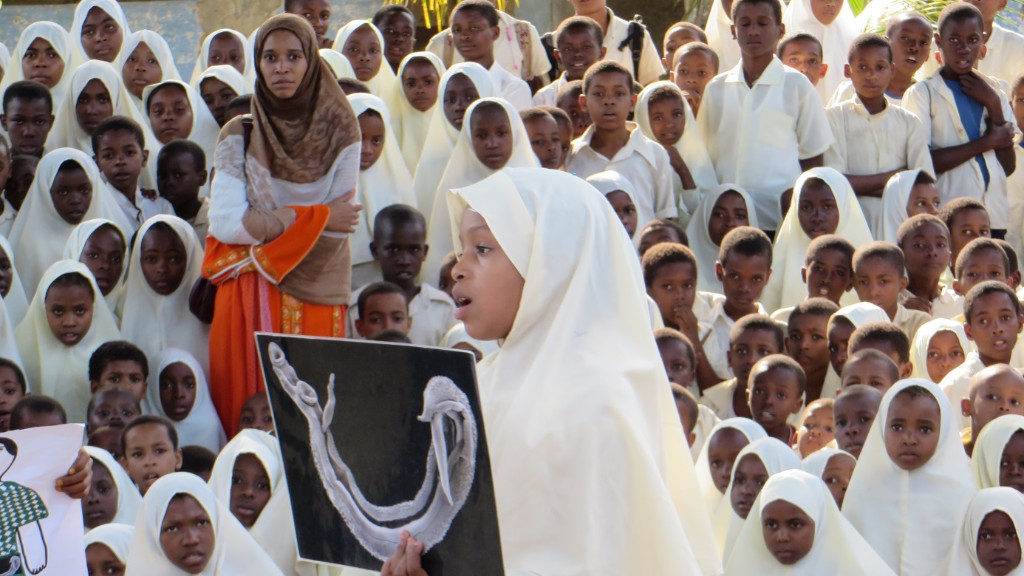
Zanzibar Elimination of Schistosomiasis Transmission
Urogenital schistosomiasis was once a major public health problem in Zanzibar, Tanzania. Over the the past century, prevalence has been significantly reduced and elimination of the disease and interruption of transmission are now within reach. In 90 schools and communities on the islands of Unguja and Pemba, Swiss TPH evaluated whether snail control or behaviour change interventions have added value to the biannual mass treatment of the population with praziquantel. Read more
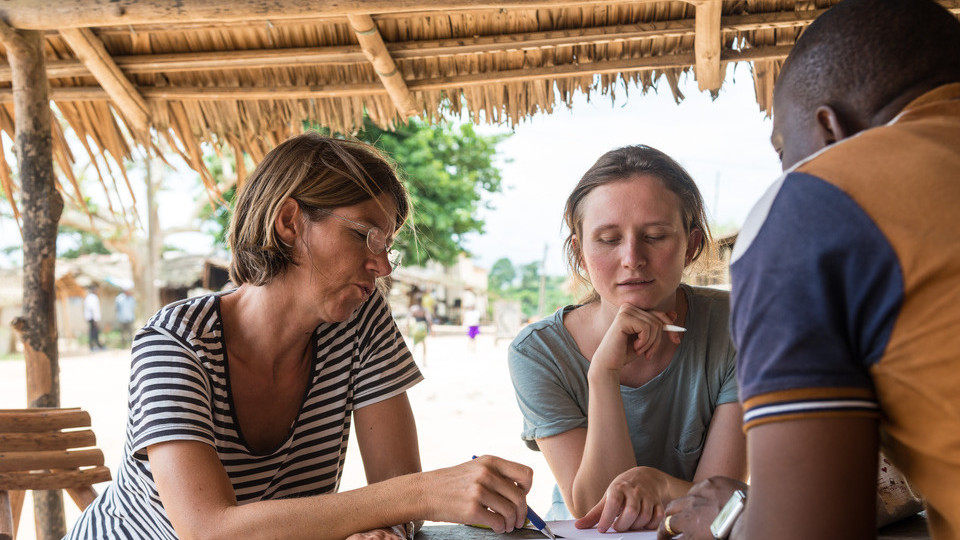
Combination Chemotherapy for Soil-Transmitted Helminthiasis
Drug combinations for the treatment of soil-transmitted helminthiasis are receiving increasing attention. Swiss TPH has conducted a number of pivotal trials in recent years, including one to assess the efficacy and safety of oxantel pamoate-albendazole. Swiss TPH also aims to conduct preliminary studies on the efficacy of albendazole and ivermectin in dose-response relationship studies in different population subgroups and to investigate the pharmacokinetic properties of ivermectin. In addition, studies have been initiated to investigate the safety and efficacy of combinations including tribendimidine and moxidectin. Read more about helminth drug development
Modelling Transmission Dynamics of Opisthorchis viverrini
O. viverrini, a liver fluke, is widespread in South-East Asia. Swiss TPH is working on deterministic population-based and stochastic individual-based models of O. viverrini transmission to provide a basis for comparing the likely effects of different control strategies in reducing parasite transmission and burden, assessing the relative contribution of reservoir hosts and the impacts of varying fishing practices. The project will provide a basis for rational control planning, particularly in the context of a new control programme in Lao PDR. Read more
